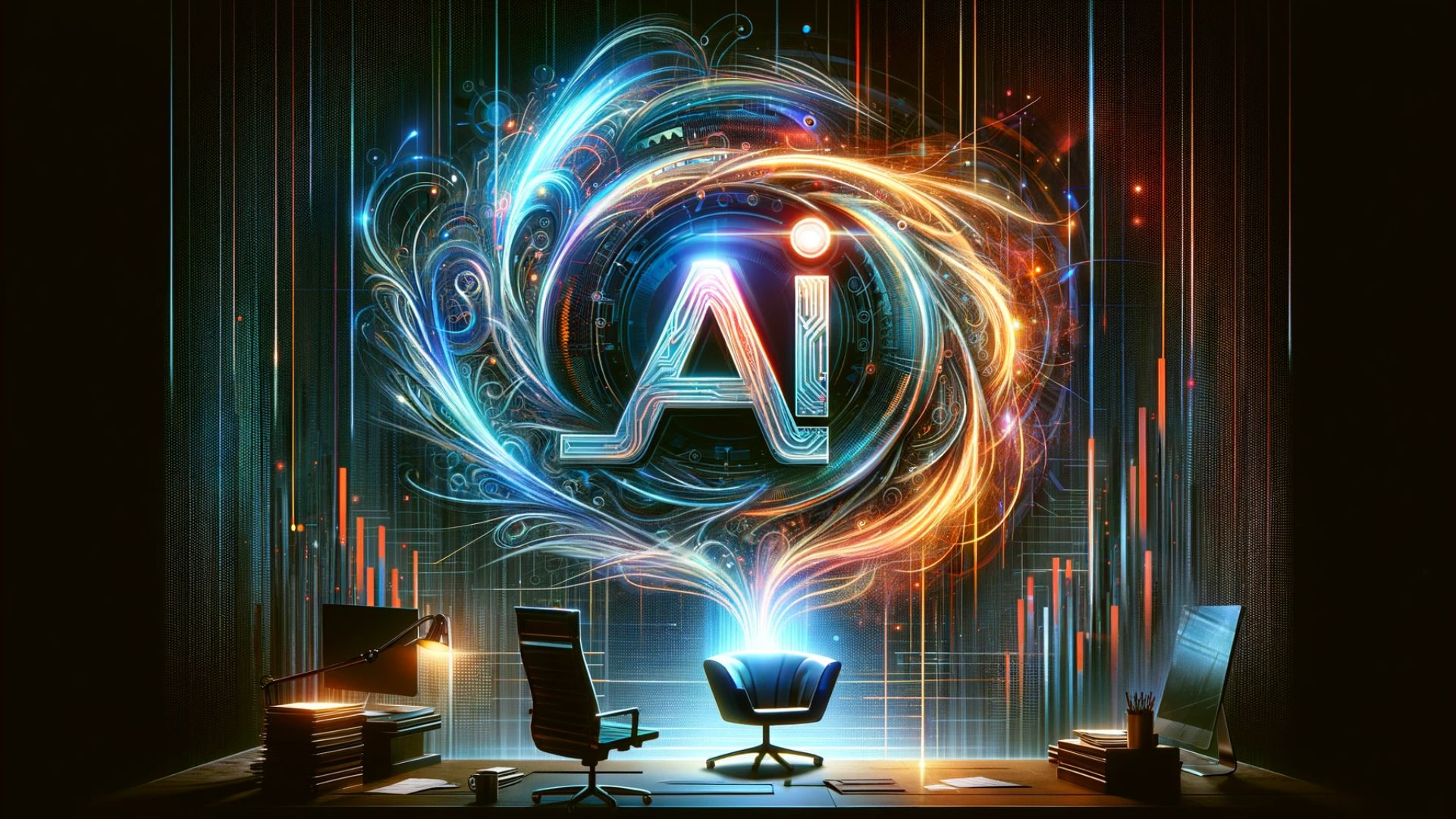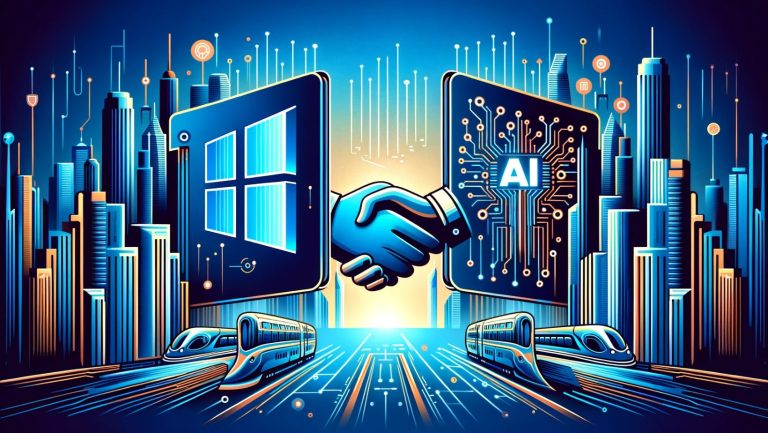Sam Altman Leaves OpenAI: An Analysis of Leadership Transition and Industry Impact
Some of our posts on EvenReviews.com contain affiliate links. If you click on an affiliate link and make a purchase, we may receive a commission. Clicking on an affiliate link that earns a commission does NOT result in additional charges or costs you extra. Earnings from affiliate links help keep this website running. See our full affiliate disclosure here.
Sam Altman Out as CEO of OpenAI: A Major Shakeup for the AI Industry
The artificial intelligence community was rocked by the news that Sam Altman has been removed as CEO of OpenAI. Altman co-founded the company in 2015 and led it to global prominence after the launch of ChatGPT in 2022. However, OpenAI’s board of directors stated that Altman was not consistently transparent in his communications with them, ultimately eroding their confidence in his leadership. This sudden shakeup leaves OpenAI at a critical point, raising big questions about the direction and leadership of one of the most talked-about companies in technology today.
Key Takeaways
- OpenAI’s board abruptly removed CEO Sam Altman due to concerns about his transparency and communications with the board.
- The specific issues behind Altman’s ouster have not been disclosed publicly. There are unanswered questions around tensions between OpenAI’s nonprofit research roots and commercial interests.
- Altman’s removal came as a surprise both inside and outside OpenAI. The company now faces turmoil and uncertainty in its leadership.
- OpenAI CTO Mira Murati has taken over as interim CEO while the board searches for a permanent replacement.
- It is unclear how OpenAI will balance research and profit motivations going forward. Greater transparency may be needed to realign priorities post-shakeup.
- OpenAI faces stiffer competition in AI development but has substantial capabilities still. Its continued progress could slow with the leadership change.
- Spotlight intensifies on OpenAI’s responsible development and deployment of powerful AI systems like ChatGPT.
- Sam Altman’s exit cuts off a leading interface between policymakers and AI capabilities. Regulation and governance efforts could be impacted.
- The handling of Altman’s removal raised its own transparency concerns and reinforced calls for oversight of the AI sector.
- OpenAI stands at a crossroads and must navigate challenges on ethics, safety, competition, and commercialization following its CEO shakeup.
- Leadership changes could reorient OpenAI to its original research ideals. But the path forward remains filled with uncertainties.
- This shakeup underscores that guiding AI’s progress safely will require responsible leadership and transparency around rapid advancements.
Background: The Rise of OpenAI and Sam Altman
OpenAI began in 2015 as a San Francisco-based nonprofit dedicated to ensuring artificial intelligence benefits all of humanity. The research lab boasted an impressive roster of founding members, including Elon Musk, Peter Thiel, LinkedIn co-founder Reid Hoffman, and others. Sam Altman, a prominent Silicon Valley entrepreneur and investor, served as one of OpenAI’s founding board members.
The nonprofit status allowed OpenAI to pursue long-term research and safety practices for AI without needing to maximize profits. This aligned with the founders’ aim of developing artificial intelligence responsibly and for the common good rather than solely economic incentives. However, the substantial computing resources required for state-of-the-art AI systems meant OpenAI would eventually need significant financial backing.
In 2019, OpenAI was restructured into a “capped profit” hybrid model. This enabled outside investment while still pursuing its altruistic research mission. As part of the transition, Sam Altman took over as CEO of the newly reformed OpenAI.
Under Altman’s leadership, OpenAI made strides in developing powerful AI systems using techniques like deep learning and reinforcement learning. The company released technologies such as the natural language model GPT-3 in 2020, sparking interest across the AI community.
But it was the launch of ChatGPT in November 2022 that catapulted OpenAI onto the global stage. The conversational agent could generate remarkably human-like text, fielding complex questions and requests. ChatGPT immediately captured the public fascination and drew attention to the rapid advances being made in artificial intelligence.
As CEO, Sam Altman became the face of OpenAI, doing high-profile interviews and speaking engagements about the company’s work. With innovations like ChatGPT demonstrating its capabilities, OpenAI found itself at the center of both hype and apprehension about the societal impacts of advanced AI systems.
OpenAI Board Removes Altman as CEO
On November 17th, 2023, OpenAI’s board of directors announced that Sam Altman was stepping down as CEO of the company, effective immediately. The board stated that their decision followed a review process which found that Altman had not been consistently candid in his communications with them. Citing this lack of transparency as hindering their ability to perform their duties, the board said they no longer had confidence in Altman’s capacity to lead OpenAI going forward.
The specifics of what Altman failed to communicate openly with the board have not been publicly disclosed. There has been wide speculation around tensions between OpenAI’s research-oriented nonprofit origins and its newer commercial motivations. Others have theorized there could have been contention regarding OpenAI’s progress in developing more advanced AI systems. But without further details from the board, the exact missteps that led to Altman’s ouster remain unknown.
What is clear is that the move took many by surprise, both within OpenAI and across the wider tech industry. Altman himself had made public appearances earlier in the same week of his removal, with no hints of the imminent leadership shakeup. The abrupt decision points to serious issues between Altman and the board that prompted his swift dismissal as CEO.
Appointment of New Interim OpenAI CEO
With Sam Altman’s departure, OpenAI appointed its Chief Technology Officer Mira Murati as interim CEO. Murati has been with OpenAI for several years in a senior leadership role focusing on the company’s research, product development, and safety practices. The board stated its belief that her extensive experience at the company makes her uniquely qualified to step into the CEO position temporarily during this transitional period.
Additionally, OpenAI co-founder and President Greg Brockman is stepping down from his role as chairman of the board but will remain in his current position. The leadership change leaves Murati as the new public face guiding OpenAI at this crucial juncture while the search commences for a permanent new chief executive.
Many industry observers have noted that the appointment of Murati, a woman with an engineering background, breaks from the typical profile of Silicon Valley tech CEOs. Her technical expertise blended with a deep understanding of OpenAI’s culture and values is seen as a potential strength. However, Murati now faces huge challenges navigating OpenAI through the turbulent aftermath of the Altman shakeup and increased scrutiny of its technologies.
Open Questions About OpenAI’s Future Direction
Sam Altman’s sudden ouster from OpenAI has raised pressing questions about the direction and priorities of the company moving forward. A key issue will be how OpenAI chooses to balance its original nonprofit research principles with its newer commercial interests under fresh leadership.
There are concerns that OpenAI has strayed too far into the realm of seeking profits, market share, and flashy product launches at the expense of responsibly developing AI. Altman had been an outspoken proponent for commercialization, arguing it was necessary to fund OpenAI’s costly compute needs for ongoing research. But some have speculated that tensions with the board arose from overzealous business motivations that diverged from OpenAI’s founding ideals.
With Altman gone, there is uncertainty around how OpenAI will now calibrate its priorities between pure AI research and commercial ventures. Greater transparency and commitment to ethics may be required to realign OpenAI’s trajectory after the shakeup.
Another major question is whether OpenAI can maintain its meteoric pace of high-profile AI breakthroughs following Altman’s exit. The company now faces rising competition from deep-pocketed tech giants like Google who are investing heavily in their own AI capacities. OpenAI is also likely to see a period of internal turbulence and loss of momentum due to the leadership void. Its continued progress in advancing artificial intelligence could slow if the post-Altman transition is not handled smoothly.
Ultimately, OpenAI still possesses world-class AI research talent and backing from partners like Microsoft. Its path forward will depend greatly on who the board selects as the next CEO and the direction they chart for OpenAI. But the turmoil surrounding Altman’s departure raises doubts that will need addressing.
Societal Impact and Regulation Loom Large After Shakeup
The exceptional capabilities of systems like ChatGPT developed under Altman’s tenure have highlighted the urgency of debates around AI safety and regulation. Advances like conversational agents that can synthesize information, computer code, and more at scale have brought both promise and risks. OpenAI’s leadership change could strongly shape how those promises are fulfilled and risks mitigated going forward.
Already, lawmakers and the public have grown more vocal about the need for guardrails around how artificial intelligence is built and deployed. Sam Altman himself had cautioned about the dual-edged potential of AI, calling for measures to ensure it benefits humanity. But his ouster was at least partly due to a lack of transparency with OpenAI’s own board. This opacity could reinforce arguments that stronger oversight and regulatory frameworks are required for the AI sector overall.
At the same time, Altman’s high profile and connections provided a conduit for lobbying policymakers on AI governance issues. His absence cuts off a major link between the technology world and government leaders. Initiatives to implement regulation, accountability, and ethics principles for artificial intelligence could lose momentum without Altman as an intermediary.
Regardless, the spotlight on OpenAI is unlikely to dim. As a pioneer in artificial general intelligence research, its internal decisions on safety and transparency carry far-reaching consequences. After the unsettling removal of its CEO, OpenAI will be under pressure to lead responsibly and proactively in stewarding AI advancements for the greater good. The stakes for navigating this inflection point successfully could not be higher.
Final Thoughts: An Uncertain New Chapter for OpenAI
The abrupt dismissal of Sam Altman from his leadership role at OpenAI sent shockwaves across the artificial intelligence landscape. While internal reasons led to the board’s loss of confidence in Altman, the opaque nature of his removal raises its own concerns. Their stark citation of Altman’s lack of openness seems ironic given the cryptic handling of his ouster. This cloudiness only amplifies calls for transparency and clear communication around AI’s rapid development.
OpenAI now stands at a crossroads as it searches for a new CEO and charts its future course. Following Altman’s exit, there is an opportunity to refocus the company’s energies around responsible research, safety precautions, and service to its original nonprofit ideals. But the path forward is filled with challenges, competition, and unknowns that will require deft navigation.
Altman’s contribution to OpenAI’s birth and meteoric growth over the past seven years cannot be understated. But the board’s decision signals they believe a leadership change is necessary as the company enters its next chapter. Where OpenAI goes from here without its first CEO at the helm remains to be seen, but this shakeup underscores that OpenAI and artificial intelligence overall are still grappling to control powerful genies released from bottles. One thing is certain: the ripple effects from Altman’s removal will shape OpenAI and the AI landscape for years to come.



